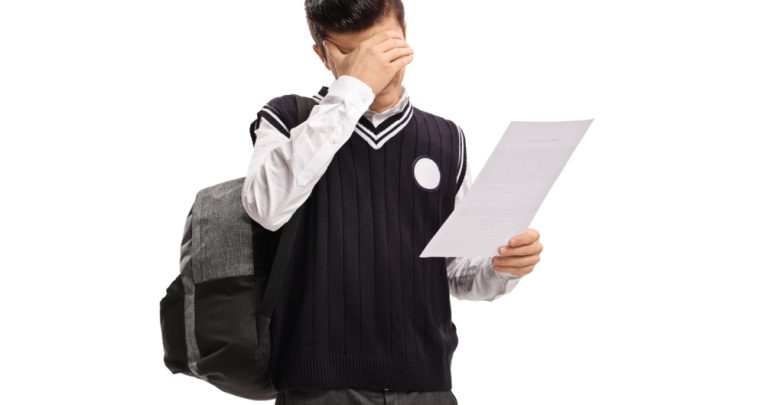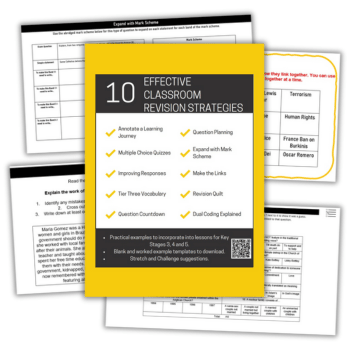This simple piece of advice will help GCSE students excel in exams by avoiding silly mistakes

“Read the ******* question!” – It’s the one piece of exam advice that every teacher seems to agree on, but Adam Boxer reckons we’ve got it back to front…

- by Adam Boxer
- Science teacher, lead practitioner and co-founder of Carousel Learning Visit website

Going over year 11 mocks with students is always a trying affair. Frequent calls of, “but that’s what I wrote!”, “that’s what I meant!” or the dreaded “sir, you’ve counted this up wrong!” fill the air of my usually quiet and calm lab.
But going over the exam is only worthwhile if it leads to some tangible improvement, which is why excellent teacher feedback and advice is vital.
Different teachers give different recommendations but it seems that a universal refrain is to cajole students to “read the question!”, often with a mild expletive in between “the” and “question.”
Here’s the kicker though: I’m pretty sure that’s bad advice.
Bear with me, and allow me to illustrate with an example. In one of our chemistry papers the questions reads as:
Write the ionic equation for this neutralisation reaction. Include state symbols. (2 marks)
One of my best students dropped a mark here for forgetting to include the state symbols. He was very annoyed at this “silly mistake” and I asked him what he thought had gone wrong. He responded that he “hadn’t read the question”.
This is a matter of historical fact, did he read the question or didn’t he? He claims he didn’t but in order for him not to have read it, he would have had to finish at the word “reaction” and then totally skip the next three words and jump straight into his answer.
I highly doubt that this was the case – how could anyone physically read one half of a question but not the other?
Memory lapses
What I think is far more likely is that he – like most normal human beings – read everything that was in front of him. He most certainly read the second half of the question; he just didn’t address it in his answer.
I suspect this is because as soon as he started answering the first half of the question he clean forgot about the second half.
This accords well with a basic finding from the cognitive sciences: there is only so much we can hold in our minds at once.
If you are concentrating on deriving an equation for a neutralisation reaction you simply cannot also concentrate on including the state symbols; there isn’t enough space in your working memory to do so.
When students say they didn’t read the question that isn’t true; they did read it. Something else went wrong to prevent them giving a correct answer. I’ll come back later as to how we respond.
Another common piece of advice I hear is for students to “check their answers” at the end of the paper. Though I don’t have any hard data on this, I suspect that when we say it to students what they hear is “check your spelling.”
I rarely see much evidence of students actually going back and re-crafting or amending their answers.
Flip it
So we have two pieces of advice that don’t seem to really help things: read the question and check your answers. I would suggest we flip these adages on their heads: read your answer and check the question.
At the end of each question, students should read over their response and then check the question – have they answered all of its parts? Whilst they are writing their answers their minds are a busy flurry of cognitive activity; an activity which leaves no room for all the components of the question.
Once they have written it however, their mind can ease up a little and focus less on the complicated act of retrieving information and translating that into the coherent written word.
Now they have the opportunity to coolly evaluate to what extent their answer meets the demands of the question. If my student had read his answer and then checked the question again, I have no doubt that he would have noticed the lack of state symbols in his response, added them, and gained both marks.
So that’s my advice to students: read your answer, then check the question.
Adam Boxer is a chemistry teacher and head of KS3 science at JCoSS. He is also the chemistry tutor on the BPP PGCE course. Follow him on Twitter at @adamboxer1.










